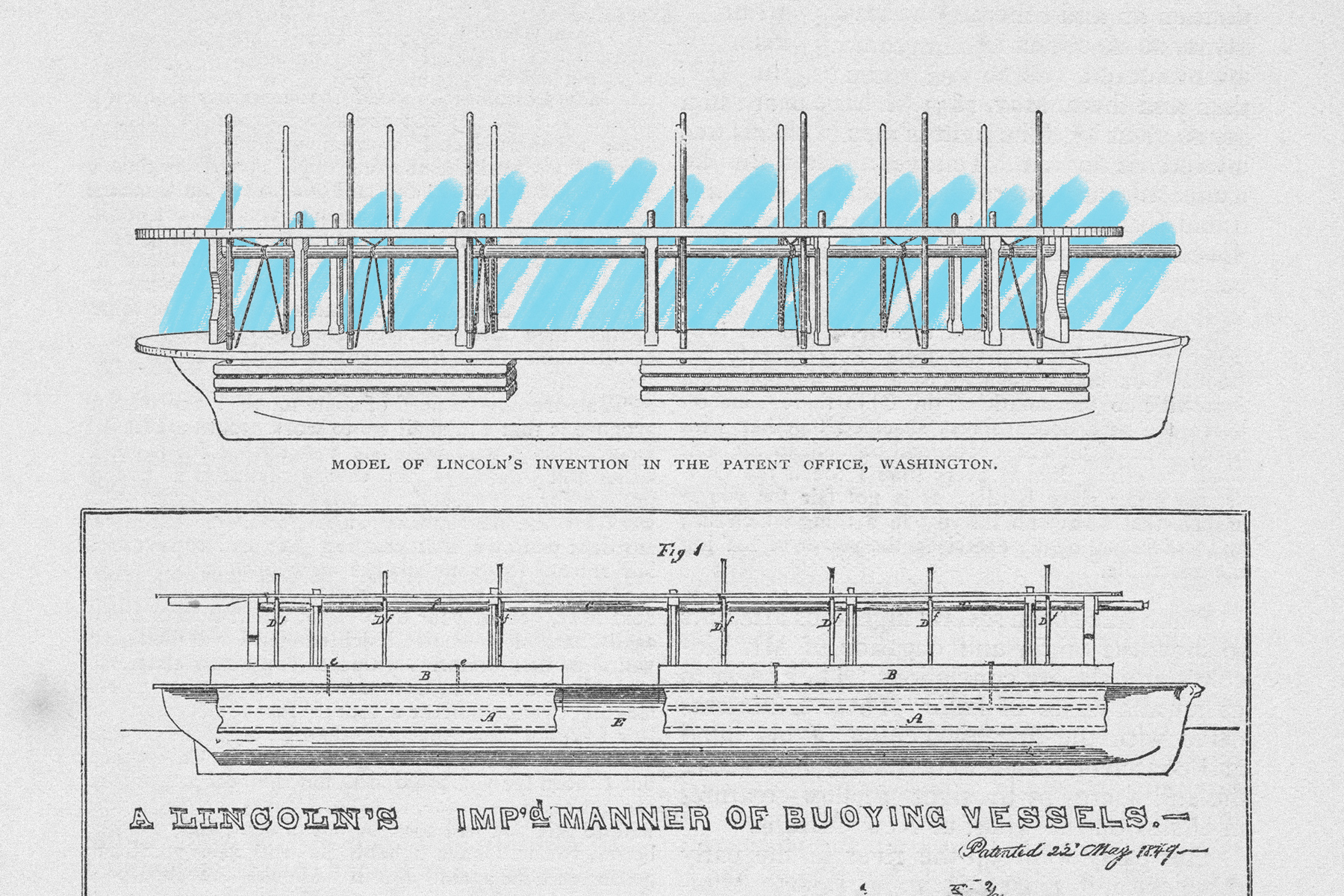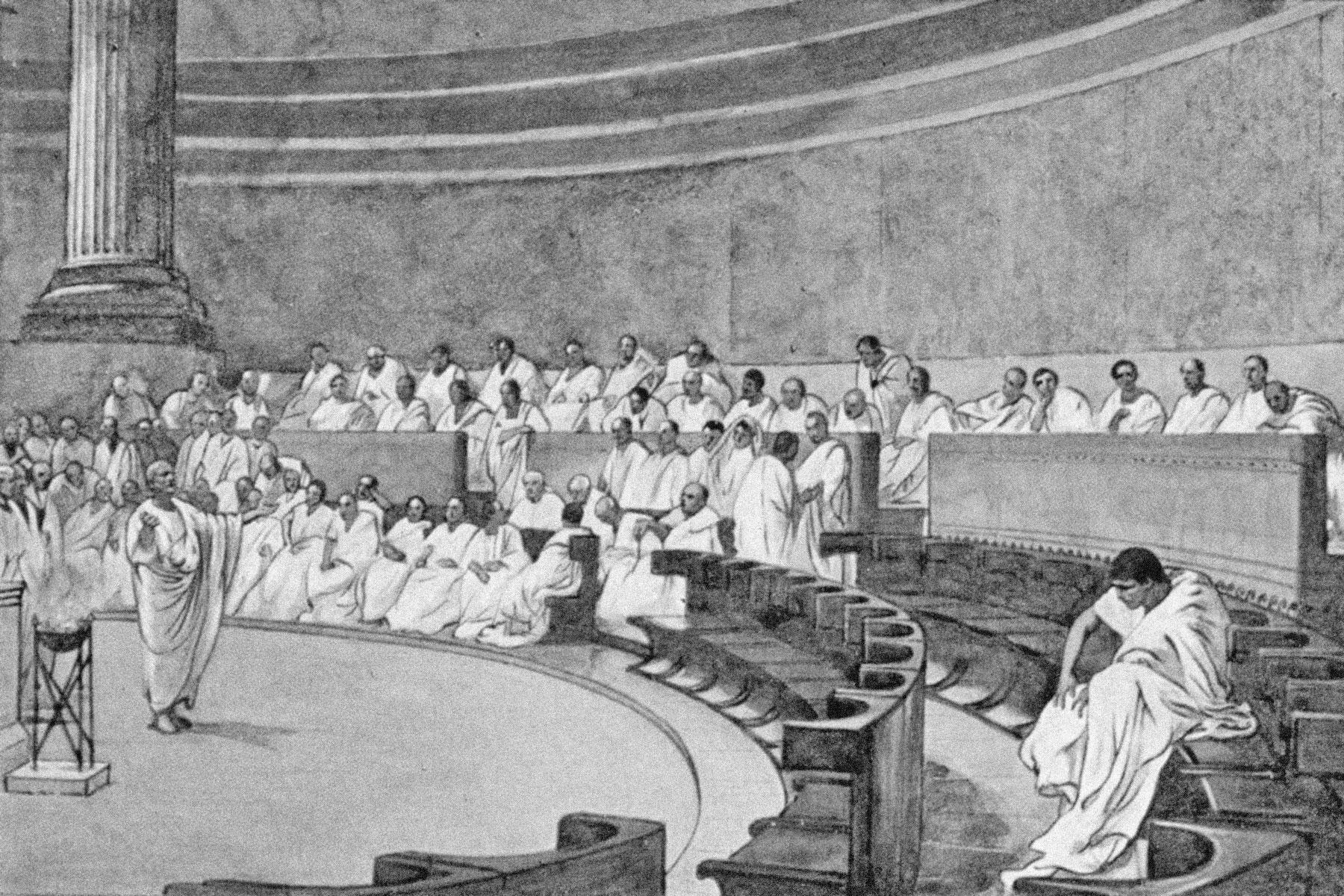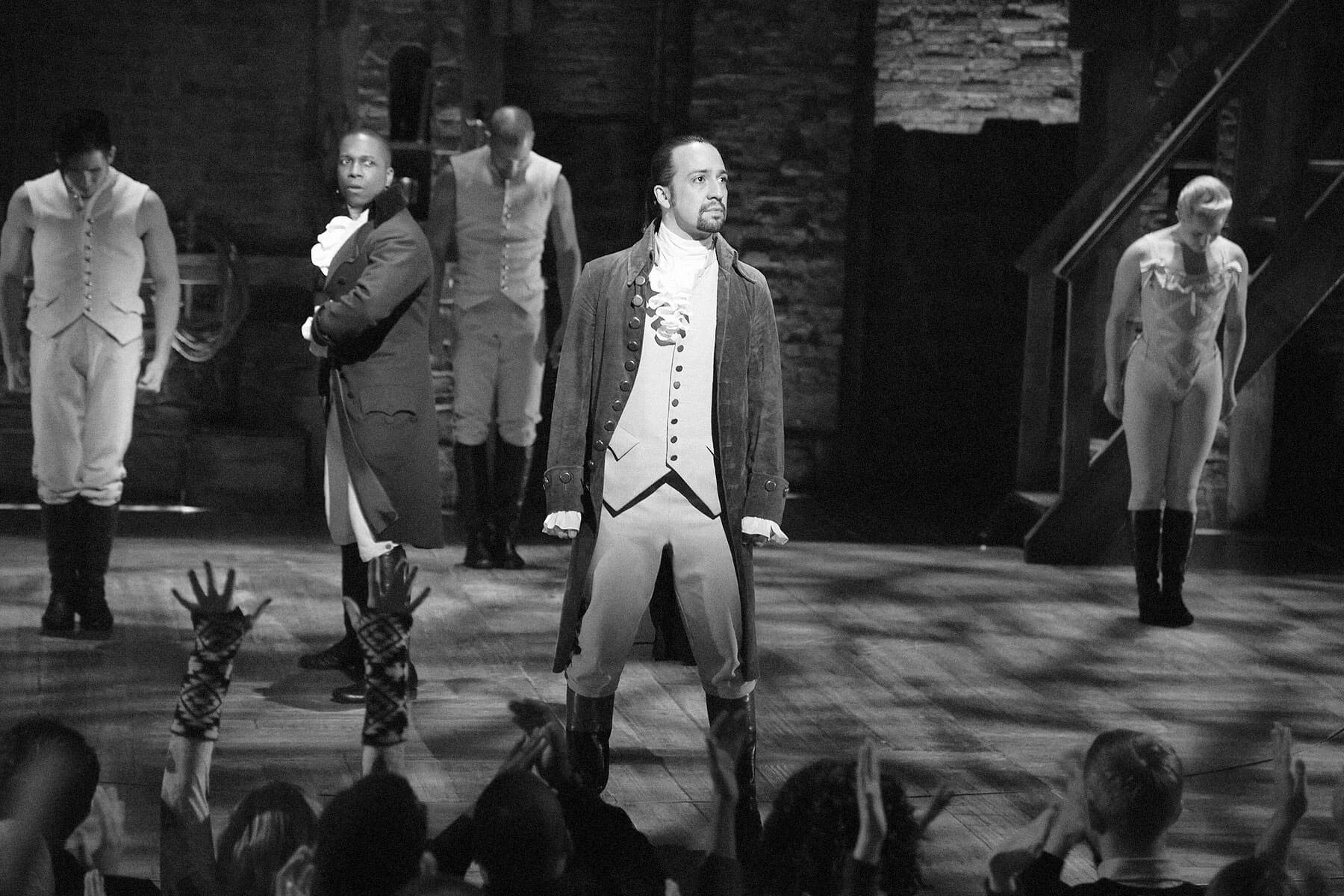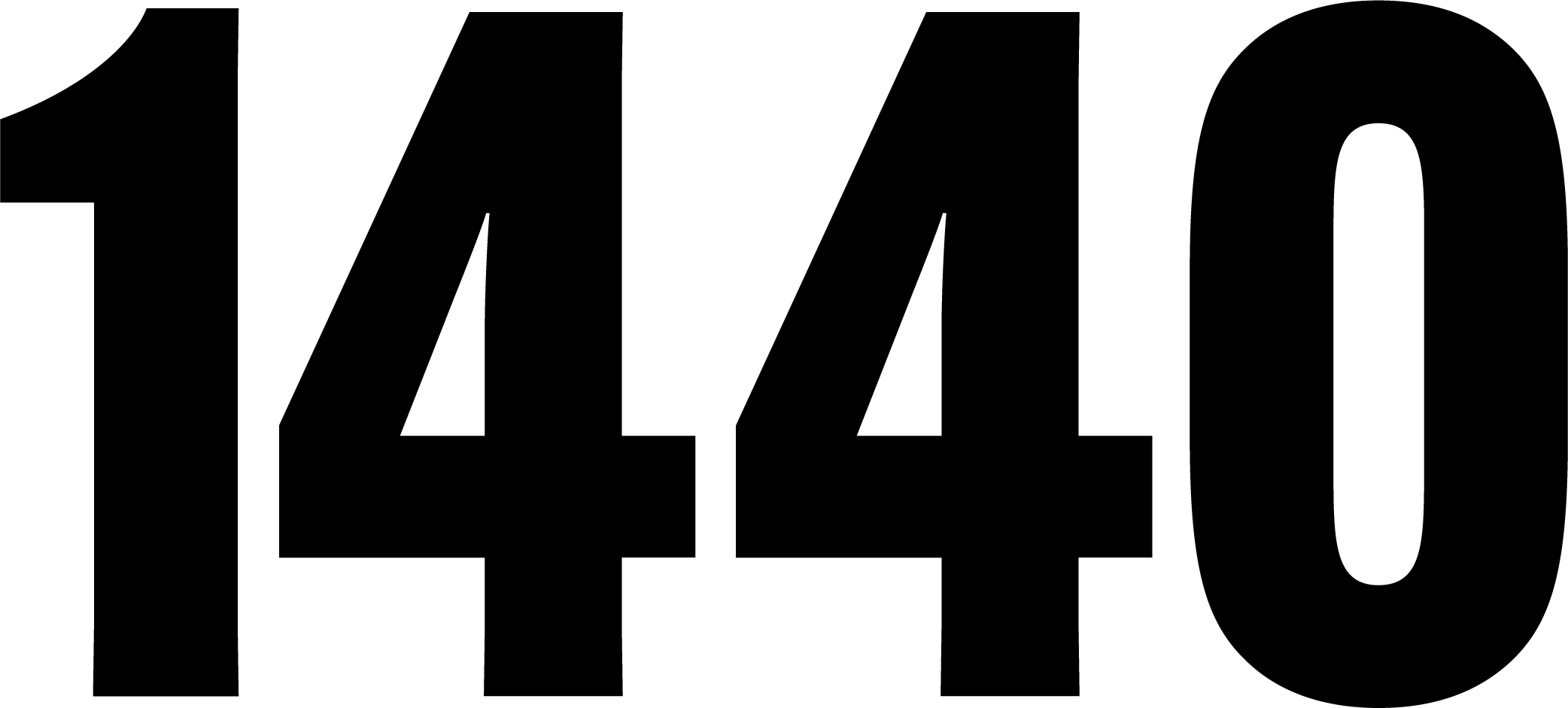 |
Abraham Lincoln is the only U.S. president to have obtained a patent. |
Famous Figures |
 |
| |
| Lincoln developed an early fascination with mechanics because of his father, Thomas, who was described as "something of a mechanic" by Lincoln's former law partner and biographer William H. Herndon. Honest Abe was also well-versed in water navigation, having spent his teenage years riding riverboats. During these formative years, Lincoln noted how tough it was for boats to navigate through shallow sandbars without getting stuck. He also curiously noted that there was no easy solution — yet. | |
| In 1848, Lincoln began work on an invention to remedy this problem after an incident in which he found himself stranded on a sandbar while traveling from Washington, D.C., back to Illinois. He came up with a way to use adjustable buoyant air chambers to help boats navigate through shallow waters with ease, and hired Springfield architect Walter Davis to create a scale model replica. While the device was never widely manufactured, Lincoln brought the replica back to Washington, where he successfully procured a patent for his invention. | |
 | |
 | |||
| |||
Expand Your Horizons: Join 1440 Today | |||
| Thank you for supporting our sponsors! They help us keep History Facts free. |
 | |||||||||
By the Numbers | |||||||||
| |||||||||
| |||||||||
 | |||||||||
| |||||||||
Lincoln once argued a case before the U.S. Supreme Court. | |||||||||
| Abraham Lincoln is one of 27 lawyers to hold the position of U.S. president, eight of whom have argued cases before the U.S. Supreme Court: John Quincy Adams, James Polk, James Garfield, Benjamin Harrison, Grover Cleveland, William Howard Taft, Richard Nixon, and of course Lincoln. The case he argued was Lewis v. Lewis (1849), which dealt with the statute of limitations over a contested land deed. Lincoln argued in favor of the defense on March 7 and 8, 1849, just after his first and only term in Congress came to a close. His arguments have since been praised by legal experts, as he showed great skill in defending his client. However, the court ultimately ruled against Lincoln's client, with Chief Justice Roger Taney issuing the majority opinion. Coincidentally, Taney later administered the oath of office at Lincoln's presidential inauguration in 1861. | |||||||||
 | |||
Recommended Reading | |||
 | |||
| | |||
 | |||
| | |||
| + Load more | |||
| |||||||||
| 700 N Colorado Blvd, #513, Denver, CO 80206 | |||||||||






No comments:
Post a Comment